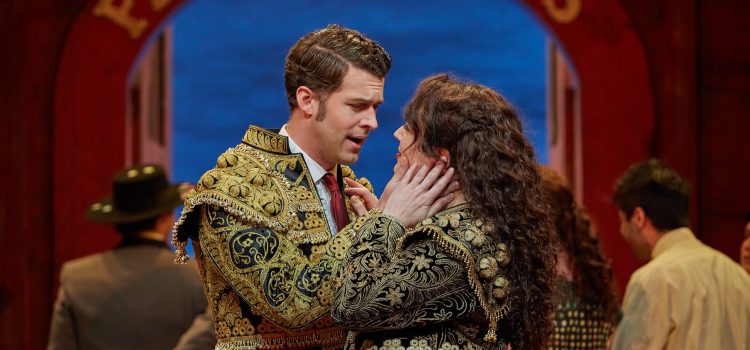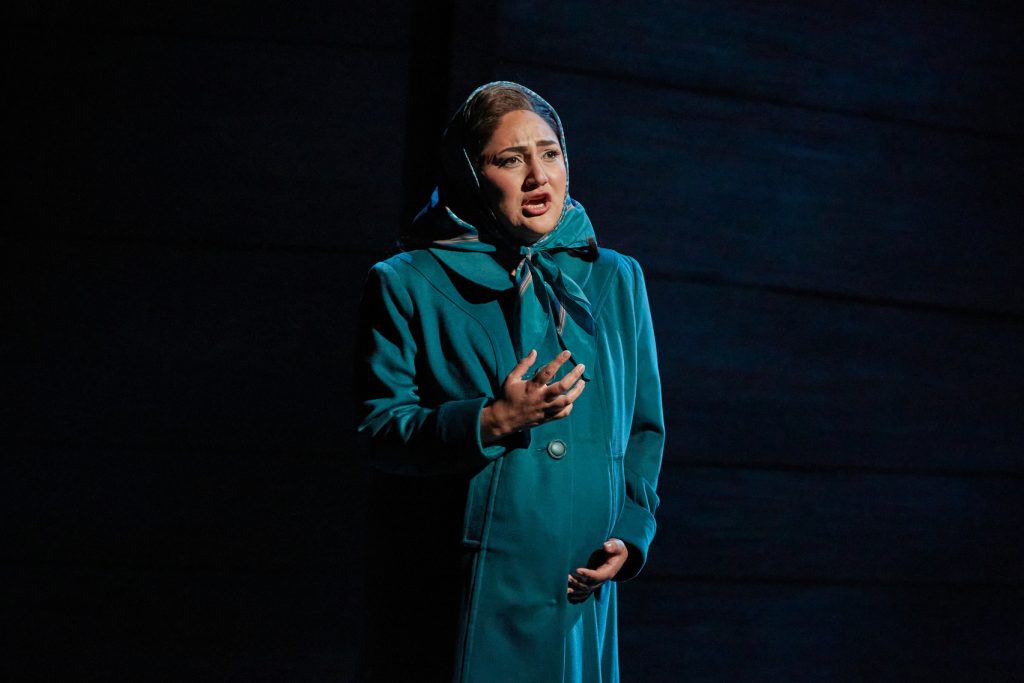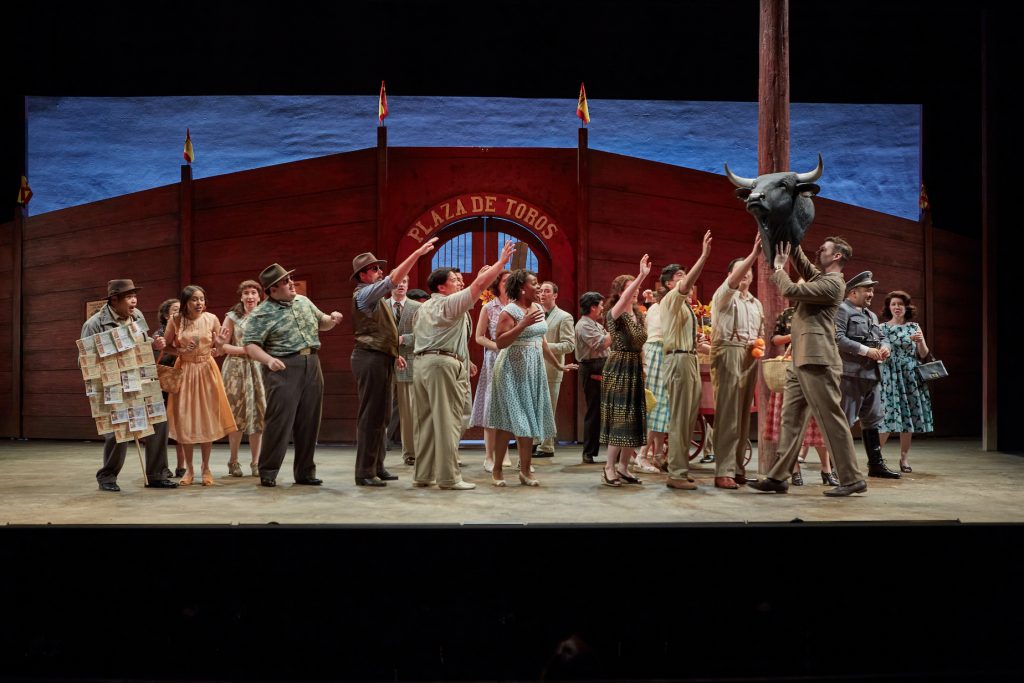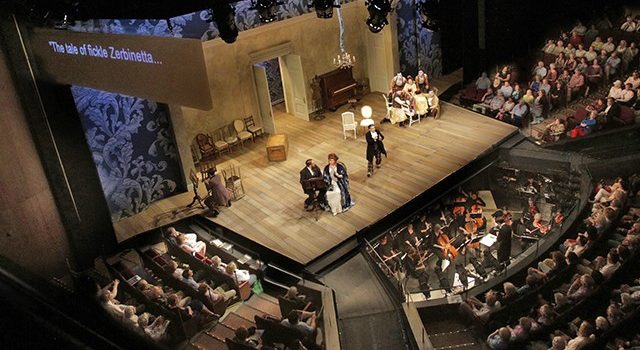By Lynn Venhaus
A bizarre and strange reimagining of Georges Bizet’s 1875 opera “Carmen,” this experimental film is also oddly compelling.
That’s because of the chemistry of the two leads Melissa Barrera as Carmen and Paul Mescal as Aidan. They are haunting in a modern story long on magic realism and short on backstories, character development and motives. Even the time and place aren’t definitive.
And because the fragmented and unfocused screenplay is the most frustrating aspect of the gritty film, what we glean from the tragic romance co-written by Oscar winner Alexander Dinelaris (“Birdman” in 2015), Loïc Barrère, and Lisa Loomer is that there is little resemblance to the classic opera but a smidgeon of similarity to the 1954 film “Carmen Jones.”
However, there is a tormented soldier and a fierce young woman both drawn to each other because of circumstances.
Carmen and her mother are mysterious women living in the Mexican desert, and the discharged Marine Aidan, now back home, has PTSD.
The daughter is forced to flee after her mother Zilah (Marina Tamayo) is murdered while she dances flamenco-style. Then, during a dangerous border crossing, Carmen is rescued by Aidan, who takes a job working as a border guard. His first night isn’t exactly what he had in mind, and he’s now on the run with a stranger.
Lots o’ baggage is obvious but not revealed. The pair head to Los Angeles where she seeks her mother’s best friend, the mercurial Masilda (Rossy De Palma), who owns a nightclub, La Sombra. The exotic entertainer gives them a safe space to hide but the police are on their trail. (Fun fact: De Palma, a Spanish actress, has been in multiple Almodóvar films.

The very fit couple spend a good deal of time physically running while they try to avoid getting caught.
In his feature film directorial debut, French choreographer Benjamin Millepied is fascinated by doorways and other symbolism, crafting a dreamscape using the color red as a visual nod to the iconic opera (and Pedro Almodóvar’s bold use of color in his films, anyone?).
Millepied, who choreographed “Black Swan” (starring his wife, Natalie Portman, in her Oscar-winning role), uses interpretive dance numbers in an attempt to propel the muddled story.
Barrera, a Mexican actress who was in the film adaptation of Lin-Manuel Miranda’s “In the Heights” as Vanessa, is not a trained dancer but her grace and technique are impressive. She has played Sam Carpenter in the fifth installment of “Scream” and its follow-up “Scream VI,” and has a hypnotic quality to her performances.
She pairs well with Mescal, the Irish actor Oscar-nominated this year for “Aftersun,” who competently dances with her in the desert and at the club. They also sing (separately) in the movie.
Composer Nicholas Britell has crafted an intriguing original score, further enhancing his reputation that includes three Oscar-nominated compositions (“Moonlight,” “If Beale Street Could Talk” and “Vice”) and an Emmy Award for Outstanding Original Main Title Theme for “Succession.”
Julieta Venegas and Taura Stinson wrote lyrics to Britell’s music for several songs, and a French choir is used as soundtrack background.
Not sure why more dance and less opera are a means to connect the characters, but the concept is “inspired by,” and not a remake per se. I think it is equally confusing to those who are familiar with the opera and those who’ve never seen it before.
While one can applaud the ambition and certain moments, overall it is not a satisfying experience.

“Carmen” is a 2022 drama with music and dance directed by Benjamin Millepied and starring Melissa Barrera, Paul Mescal and Rossy De Palma. It is rated R for language, some violence and nudity and the run time is 1 hour, 56 minutes. The movie opens in select local theaters on May 12. Lynn’s Grade: C.

Lynn (Zipfel) Venhaus has had a continuous byline in St. Louis metro region publications since 1978. She writes features and news for Belleville News-Democrat and contributes to St. Louis magazine and other publications.
She is a Rotten Tomatoes-approved film critic, currently reviews films for Webster-Kirkwood Times and KTRS Radio, covers entertainment for PopLifeSTL.com and co-hosts podcast PopLifeSTL.com…Presents.
She is a member of Critics Choice Association, where she serves on the women’s and marketing committees; Alliance of Women Film Journalists; and on the board of the St. Louis Film Critics Association. She is a founding and board member of the St. Louis Theater Circle.
She is retired from teaching journalism/media as an adjunct college instructor.






